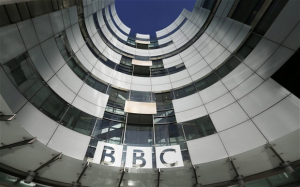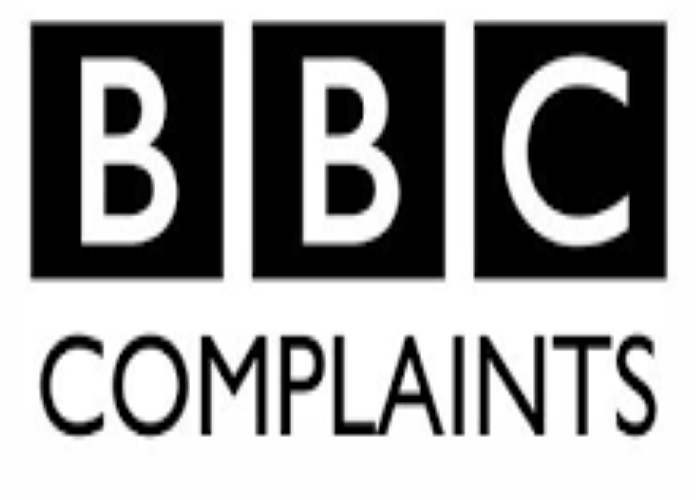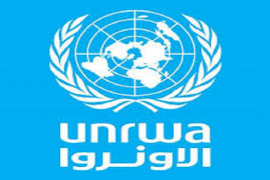When the BBC’s Royal Charter was last renewed in 2016, the terms included the possibility of a mid-term review between 2022 and 2024.
“This review aims to examine and assess how effectively the governance and regulation arrangements of the BBC are performing at the half-way point of the BBC Charter.”
The UK government’s Department for Culture, Media and Sport has now published the findings of that mid-term review.
In the ministerial forward, readers find the following:
“A major challenge for the BBC continues to be impartiality. It strikes at the very core of the BBC’s remit and the public expects the organisation to embody this value. But, as this review makes clear, audience perception that the BBC is not sufficiently impartial is an ongoing issue and, within a culture of continuous improvement, more can be done.”
The document states that the mid-term review:
“…has identified ways in which both the BBC and Ofcom need to make meaningful and effective change to the BBC’s governance and regulation to ensure the organisation is delivering for licence fee payers: for example, strengthening the BBC’s oversight of its complaints process to ensure audiences have trust that their complaints will be dealt with in a sufficiently independent way, and giving Ofcom new powers to regulate elements of the BBC’s online public service content.”
One of the proposed changes is an expansion of OFCOM’s role to include online BBC material.
“Ofcom will be required to apply the same principles of the Broadcasting Code in a new code for BBC online public service material, adapted to reflect the specific characteristics of online material. We will work closely with both Ofcom and the BBC to confirm the precise scope of the new regulatory framework, but our intention is that it will include BBC online public service material that is targeted at UK audiences and over which the BBC has editorial control, including where that is on a third party platform. This means including in scope:
- BBC online activities such as material on the BBC news website; and
- BBC public service branded and editorially controlled material on a third party website, third party application or third party online interface (e.g. YouTube, other video sharing platforms or any website which is not within the bbc.co.uk domain)”
Another proposed change concerns the handling of complaints.
“The government has agreed with the BBC to update the Framework Agreement to create a new obligation for the BBC Board to hold the BBC Executive accountable in its handling of complaints. The Charter requires the BBC Board to oversee the establishment of a complaints framework but the Board has no specific legal responsibilities to ensure that the framework is working effectively. As agreed with the BBC, we will therefore amend the Framework Agreement in line with the BBC’s proposal to create a new, legally binding responsibility for the Board to oversee the day to day delivery of the complaints framework by:
- monitoring the operation of the framework
- assessing its effectiveness in responding to complaints
- ensuring the framework complies with the requirements of the Charter”
A substantial part of the report relates to the BBC Complaints procedure and it includes sections on issues often raised by our readers.
One section concerns the BBC practice of issuing ‘one size fits all’ responses to complaints, particularly at times when many complaints are submitted. As many readers know from personal experience, those standard responses more often than not fail to address the specific issues raised by the complainant. Nevertheless, the DCMS does not propose any change to that practice.
“…at Stage 1A, the BBC will group large numbers of complaints about the same content together and issue a consistent response to ensure the most efficient use of resources. We understand that offering more bespoke responses to complainants at Stage 1A (wherein each answer deals with the specific concerns of an individual) would demand significantly more resources which may ultimately have to be diverted away from another BBC service. We therefore conclude that the BBC’s approach to Stage 1A both meets its Charter requirements to provide a proportionate means of resolving complaints…”
Another section addresses the topic of complaints submitted to OFCOM after the BBC complaints procedure has been exhausted.
“The quantitative evidence suggests that BBC First delivers fair complaints decisions that withstand scrutiny from the regulator. In 2021/22, Ofcom considered 160 complaints which complainants chose to escalate after having completed Stages 1 and 2. Of the 160 cases, Ofcom upheld one complaint that the ECU had not. In the previous year (2020/21), Ofcom did not consider that any of the 185 cases escalated to it raised issues under the Broadcasting Code, and it therefore did not open further investigations. This data suggests that the regulator agrees with the vast majority of the BBC’s complaints decisions.”
That conclusion is likely to be a cause for concern among those who have taken the trouble to escalate complaints to OFCOM after having received three unsatisfactory replies from the BBC.
Another section addresses the topic of response times, quoting data that many complainants may find rather difficult to believe.
“The evidence shows that BBC First has met its targets for response times. Ofcom requires that the BBC responds to 93% of Stage 1 complaints within 10 working days. In 2021/22, 95% of complaints at this stage were handled within this target. The BBC sets its own target for Stage 2 responses, where it aims to respond to 80% of complaints within 20 working days, or 35 if the case is more complex. In 2021/22, the BBC responded to 87% of complaints within this timeframe.”
The report also relates to OFCOM’s practice of not replying directly to complaints from members of the public.
“We have considered whether changing how Ofcom communicates with complainants at Stage 3 would help it to better explain its complaints decisions, and create greater confidence in the role the regulator plays in BBC First. When it initially took over regulation of the BBC from the BBC Trust, Ofcom wrote to every complainant individually, setting out the outcome of its decision at Stage 3. However, this was found to be a disproportionate use of resources, and created an inconsistency with Ofcom’s approach to complaints about other broadcasters (where complainants are generally not given an individual response). Ofcom now instead publishes its decisions, alongside its rationale, for any complaints it has investigated in its online bulletin. When Ofcom decides not pursue an investigation, it publishes a brief line in the bulletin, setting out the programme and transmission details, number of complaints about this content, and the issue of complaint. […]
In response to the concerns highlighted through our evidence gathering, Ofcom is looking at how it communicates with audiences about complaints. Beyond publishing details of its decision, Ofcom is developing plans for further communications to increase audience understanding of its broadcast and video-on-demand rules; how the rules work in practice; how Ofcom handles complaints; and how Ofcom makes complaints decisions.”
Given that the BBC complaints procedure was the topic of public consultations initiated by the BBC in 2020 and by OFCOM in 2021, members of the BBC’s funding public may be highly disappointed to see that issues relating to that procedure – as well as BBC impartiality – are still on the table in 2024.
Related Articles:
OFCOM REPORT CRITICISES BBC IMPARTIALITY AND COMPLAINTS HANDLING






If Ofcom reads this website, I would suggest that the most effective way for the BBC to reduce their outgoing costs is to scrap their ridiculous “BBC News” It is so biased against Israel and so much in favour of the Iranian three puppets, that nobody – and I mean nobody- that I know ever turns it on for news.
BBC news is a standing joke these days, only Islamists watch it because it has become an extension of Al Jaz and has a woke globalist remainer agenda. Why it has a royal charter nobody knows because it just ignores every aspect contained in it #defundthebbc
There is something radically wrong with Ofcom. Clearly it fails to properly regulate the BBC.
As to responses to complaints about the BBC, each one deserves individual attention, like the Financial Conduct Authority and the Prudential Regulation Authority complaints handling procedures in financial matters.
Words are more powerful than fiscal dealings and can result in death as opposed to loss of utility (money)- hence the need for a comprehensive standard
A) Can someone explain the difference between the way Ofcom treats the BBC and other broadcasters? Is there a difference? If so why?
B) BBC on-line news does not allow comments. Is there a case that as our national broadcaster the BBC should allow the license fee payers who fund it to openly comment, challenge and correct mis-statements or errors, in the interests of better achieving the impartiality which is supposed to be a core value?
C) Anyone want to help get a petition together: dave@rollingassets.com